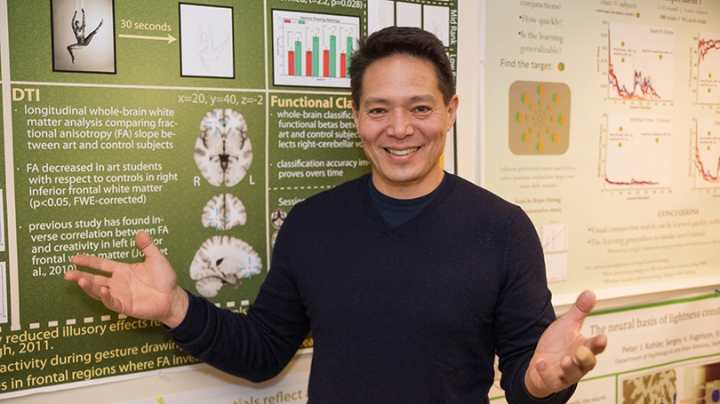A research project on the neural basis of attention, led by Peter Ulric Tse ’84, a professor of psychological and brain sciences, has won a $6 million grant from the National Science Foundation (NSF).
Researchers will aim to develop a greater understanding of focused attention, which is critical to countless daily tasks that people perform, from operating machinery to maintaining safety in high-security settings. The goal of the project is to develop a unified model of attention that applies across multiple domains, from single cells to large brain circuits.
“Paying attention is central to almost everything we consciously do in life,” says Tse. “Understanding the brain systems that afford us the ability to attend will help us understand cases where those systems are damaged, and also understand how best to foster attentional ability in normally functioning brains. As far as I know, we will be the only consortium of scientists tackling this question.”
The project establishes a consortium of 14 neuroscientists from four universities: Dartmouth, Montana State University, Brown University, and the University of Nevada, Reno.
The consortium expects to build lasting collaborations in academia and industry, expand the neuroscience workforce, and extend educational opportunities to traditionally underrepresented groups in science, technology, engineering, and mathematics (STEM). Plans include hosting a summer conference for women in neuroscience and providing educational opportunities for youths in the participating institutions’ labs.
